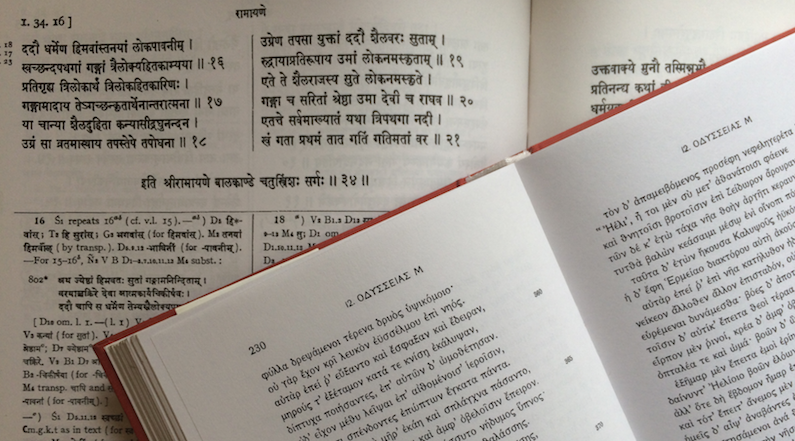
by Zabaan | Sep 11, 2019 | Classical languages, Philosophy, Sanskrit, Spirituality
The Upanishads are a repository of some of the finest and most intricate thoughts and sayings in the Indian philosophical and spiritual tradition. Of these, traditionally, four sayings (vākya), one from each of the Vedas, are said to sum up the essence of all the...

by Zabaan | Jul 31, 2015 | Ancient Greek, Classical languages, Sanskrit
Of all the Indo-European languages, ancient Greek and Sanskrit are undoubtedly the two which exhibit the clearest signs of originating from one common ancestral language. These signs were first observed in their shared basic lexicon containing, for example, identical...

by Zabaan | Jul 20, 2015 | Classical languages, Hindi, Sanskrit
“Without your love, I’m like a song without words, just like a nest without birds … I’m like a plane without wings, a violin with no strings.” You can almost hear Billie Holiday sing through the nostalgic pitter-patter...

by Zabaan | Jul 7, 2015 | Classical languages, Hindi, Sanskrit
Sanskrit and Hindi are both part of the Indo-European language family and share, if one looks closely enough, many of its distinctive features. In the case of Hindi, the language has been so tossed about in the seas of history, that many shared features have been torn...

by Zabaan | Jul 2, 2015 | Classical languages, Hindi, Sanskrit
The mother-tongue of all Indo-European languages was a root-based language, meaning that all or most of its verbs, nouns and adjectives could be reduced to a meaningful core, an atom of meaning, so to speak, which itself could not be broken down into smaller...

by Zabaan | Jun 24, 2015 | Ancient Greek, Classical languages, Sanskrit
In an earlier article entitled Father sky in ancient Greek and Sanskrit the word designating the ancient Indo-European deity presiding over of the heavens has been discussed in connection with the very close correspondences between the declension of the word sky in...







